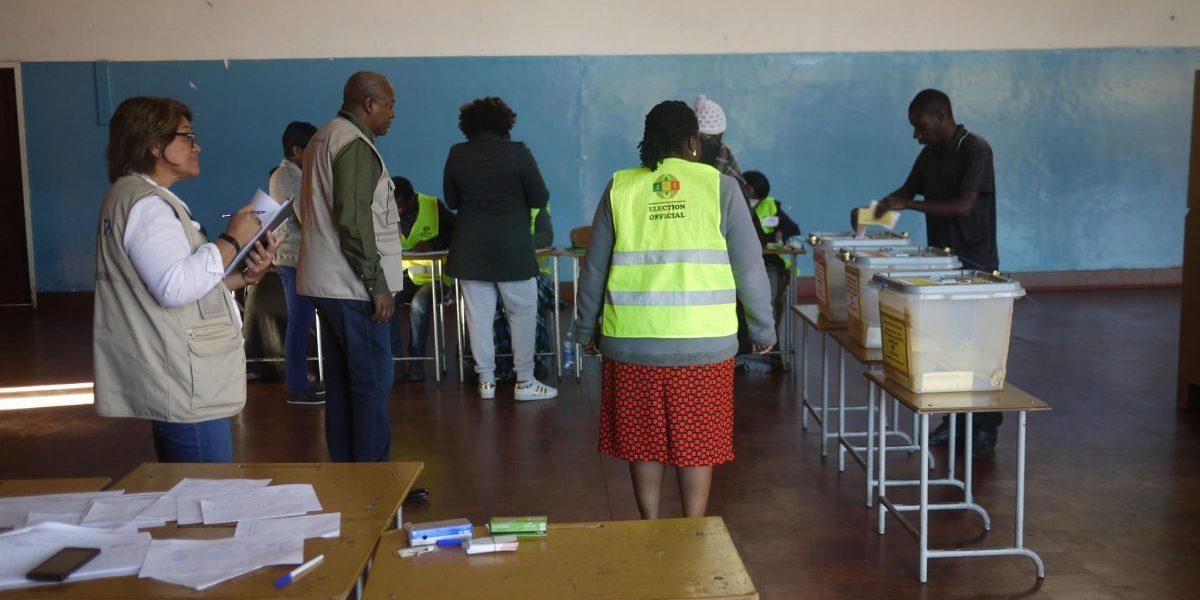The narrow focus on the David and Goliath battle between Zanu (PF) and the opposition Movement for Democratic Change (MDC) has obscured some remarkable theatrics. Because legitimacy in Zimbabwe is founded on liberation credentials, traditional loyalties, anti-colonial rhetoric and political development with an emphasis on the peasantry, it is safe to forecast the longevity of Zanu (PF) is assured in the current social climate.
Despite the hysteria around human rights violations and economic racism, Zanu (PF) remains a legitimate player in Zimbabwean politics. Its continued importance is largely due to the traits Zimbabwe exhibits as a typical post- independence state, running the gamut of a drawn-out transitional process.
The experiences of post-revolution France, to post-Meiji Japan and contemporary Mexico, have shown that it is hard to shake off the ruling class and thus the ruling party. What we see in Zimbabwe is the manifestation of a government struggling to sustain its authority amid economic transformation.
That is the nature of the developmental beast. It is almost impossible to equalise relations between rich and poor without taking bold repressive steps at disproportionate taxation or lower wages to absorb most citizens into the market. Of course, the self-interest of ruling party cadres cannot be disqualified as a variable, but that is human nature, and it is everywhere. The reality is that socialism’s failure in Zimbabwe led to withdrawal of donor aid in agriculture, creating a huge vacuum in the subsidising of basic goods needed for all people to survive. State failure to introduce contingency measures simply raised the ire of the indigenous public, which has forced a debate on the competence of leadership and its legitimacy to lead.
Zanu (PF)’s dominance is not necessarily the crux of the problem. What is problematic is the inconsistency of the party leadership that will use the rhetoric of land rights and indigenisation to create a niche for a section of the bourgeoisie.
The succession debate is an indication that long-standing internal traditions are imploding and politburo members will fight for their stature. President Robert Mugabe is no immortal. He is old, tired and quite frankly increasingly a liability for Zanu (PF)’s credibility.
The leadership question emerged about a year ago when Emmerson Mnangagwa, Mugabe’s ‘preferred successor’, was appointed speaker of parliament, even though he had lost his constituency seat and the party chairmanship to John Nkomo. Succession would not be a democratic process. It was left to party stalwarts to dismantle the internal status quo. Following some serious skulduggery from Mnangagwa rivals within the party, allegations of his corruption surfaced and subtle reminders of his brutal role in the massacre of Ndebele. Contenders started positioning themselves.
In spite of the sinister plotting, it is clear Zanu (PF) members are not prepared to be compliant about the party’s future. The divergent interests of respective constituencies are coming to the fore, and that is very democratic.
Even more mind-blowing is the introduction of a gender quota that invigorated the women’s league as a major powerbroker. The election of Joyce Mujuru as vice-president through party congress is significant on a variety of fronts.
The greatest victory is for gender equity in a society where land rights were never extended to women. Interestingly, the debate on land redistribution has ignored the fact that women are culturally not allowed to own title deeds, although they constitute 50% of the population and are the largest proportion of peasant subsistence farmers.
Mujuru’s rise, not without controversy, gives prominence to the voice of the communities from northern Mashonaland provinces. Although this region has not been marginalised it has seemingly stood as a separate interest group within Zanu (PF) because of the Karanga clan’s domination of the party.
Her nomination for vice-president was a compromise after the women’s league battled to establish sufficient consensus on her over Thenjiwe Lesabe. Owing to this, Mujuru will have to sharpen her diplomatic skills to garner more support within the league and the party.
In spite of these shortcomings, Mujuru has substantive experience as a politician. She is the wife of the king- maker, Gen Solomon Mujuru, and held several cabinet posts, including defence. She is in a good position to use the varying dimensions of her political credentials. The MDC once said Joyce Mujuru was the only ruling party executive member willing to acknowledge them as governing stakeholders in the parliament.
But there are weaknesses that are more reflective of the nature of Zimbabwean society than anything else. Her biggest challenge will be to overcome the prejudices of a patriarchal society.
She will also have to thwart the dirty tricks campaigns of the party succession debate. Moreover, Mujuru will have to face up to the inconsistencies of a modern African society that needs greater institutional democracy yet is reluctant to surrender the traditional loyalties of supporting the liberation party that is guilty of its own neocolonialism.








